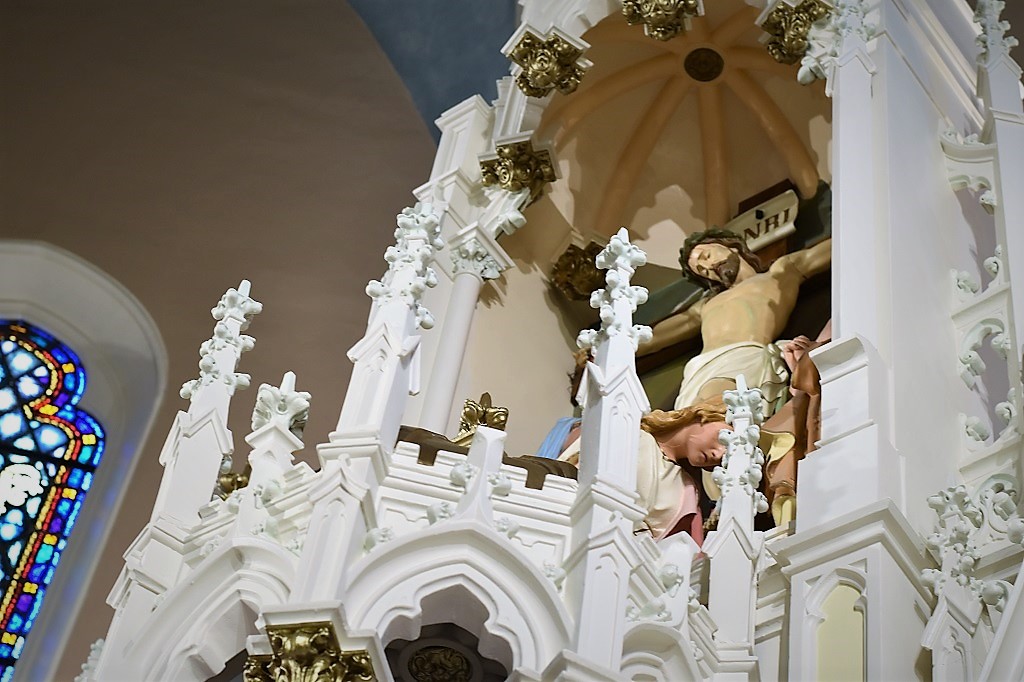What’s your type?
Anyone who remembers basic biology or who has watched a medical drama knows that humans have different blood types. When someone loses blood due to accident or injury, and that person’s blood needs to be replaced, the medical team takes care to “type” the blood, so as to match it with donated blood. A person given the wrong blood type can potentially lose their life. (Some people, those with “O” type blood are universal donors; they can supply blood to any other person, regardless of type.)
Humans cannot live without blood. Why we were created this way, only God knows, but it is fact. Without blood, we cease to exist.
As a Church, we are a living organism. We are the Body of Christ. Also, Scripture, Tradition and the saints call the Church the Bride of Christ:
The Church is the spotless bride of the spotless Lamb. “Christ loved the Church and gave himself up for her, that he might sanctify her.” He has joined her with himself in an everlasting covenant and never stops caring for her as for his own body.
What one of us would not give our blood for the life of a cherished love one? Many of us donate blood for people we will never meet this side of Heaven. We do this because we understand how vital it is to life.
Christ: the eternal donor
Christ knew the value of blood to humanity. He made it clear, at the Last Supper, that he was sacrificing His very Body and Blood for the life of the Church. He poured out that blood the following day, as He was beaten and battered, whipped and kicked, and finally crucified. Monsignor Romano Guardini:
Christ the intermediary [between us and God the Father] is a sacred living artery through which divine purity and forgiveness flow; through the establishment of the Eucharist he becomes a permanent artery, supplying all the generations with the superabundance of divine life. [The Lord]
I don’t know about you, but that puts me into a state of awe: our God has given His very life’s blood so that we can share in his divinity. As a Church, as baptized Christians, as people of the Eucharist, we receive “transfusions” of life and divinity and purity and forgiveness. Christ holds nothing back. Do we hold back? Are we reluctant to give ourselves wholly to Christ, when He has been generous to us?
St. Catherine of Siena was devoted to the Precious Blood of Christ. She prayed:
Precious Blood, ocean of divine mercy: Flow upon us! Precious Blood, most pure offering: Procure us every grace! Precious Blood, hope and refuge of sinners: Atone for us! Precious Blood, delight of holy souls: Draw us! Amen.
If we cut ourselves off from the “major artery,” that is, Christ, we will perish. If we allow ourselves to receive the transfusion of life, offered by Christ, we will have eternal life. It’s basic biology.


 Elise Hilton is an author, blogger and speaker. Her role at Diocesan Publications is Editor & Writer with the Marketing Team. She has worked in parish faith formation and Catholic education for over 30 years. A passionate student of theology, Elise enjoys sharing her thoughts on parish communication, the role of social media in the Church, Franciscan spirituality and Catholic parenting. To enquire about booking her as a speaker, please contact her at
Elise Hilton is an author, blogger and speaker. Her role at Diocesan Publications is Editor & Writer with the Marketing Team. She has worked in parish faith formation and Catholic education for over 30 years. A passionate student of theology, Elise enjoys sharing her thoughts on parish communication, the role of social media in the Church, Franciscan spirituality and Catholic parenting. To enquire about booking her as a speaker, please contact her at 
